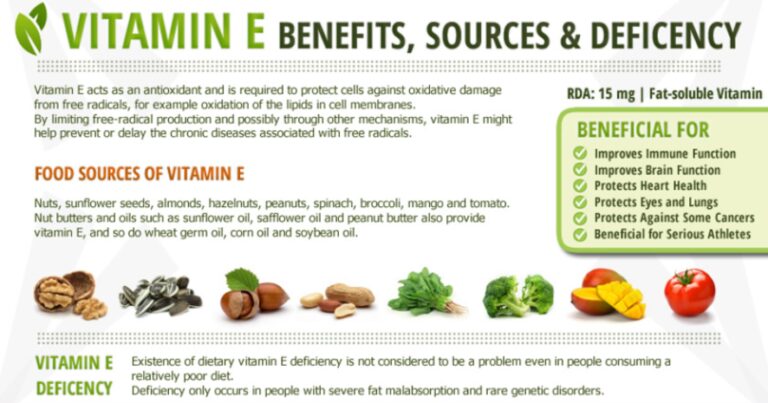In order to notice if you have vitamin E deficiency, you first need to understand the importance of Vitamin E for your body. Vitamin E process a fat-soluble quality which also has antioxidant qualities that strengthens your immune system. You normally find it in a wide range of food naturally. However, in order to increase your intake, it is added to different kinds of products.
It is not very common to present a deficiency in vitamin E, since you can find it in a lot range of foods. It is more likely to show up in people who present particular conditions or diseases. It has also been proven that the consumption of a high quantity of vitamin E can result in bleeding.
If you present any of the following symptoms, you should see a doctor:
- Difficulties when walking and coordination
- Weakness or pain in the muscles
- Difficulties with vision
- General unwellness
Treating Vitamin E Deficiency
Treat Vitamin E deficiency only after being examined and checked by a doctor. It is dangerous to begin such treatment with only the assumption of presenting deficiency in vitamin E. Doing so can lead to more health problems. If you DO present a case of Vitamin E deficiency, we suggest you to choose foods as a resource for vitamin E instead of taking supplements since they can destabilize other properties of your body.
Dieting
The following are examples of the large variety of foods than can provide vitamin E
- Nuts and seeds: Almonds, sunflower seeds, peanut, as well as peanut butter.
- Vegetable-based oils the best options are sunflower oil and olive oil.
- Whole grains
- Leafy vegetables
- Nutritionally enhanced cereal
- Kiwi
- Mango
Vitamin E Supplements
A very popular way of adding vitamins and minerals to your system is through supplements. However, is has to be done very carefully otherwise, it can result in the appearance of more health issues. Very few complements are actually regulated by a state entity, so it is very difficult to make sure that the ingredients used in the elaboration process present a good quality.
Be careful if you buy such supplements for they can interfere with other medications that you might be currently taking.
The following are some of the medication that can have a negative reaction with vitamin supplements.
- Antiplatelet
- Anticoagulants
- Niacin
- Simvastatin
- Drugs for radiotherapy or chemotherapy
There different types of vitamin E and since they are not regulated, it can be very difficult to know which one you are currently taking. Your body needs a lot more than only one kind of vitamin E. For this reason, using different foods as your source for vitamin E is highly recommended.
Amount of Vitamin E Needed
From 14 years old and on, people need to get 15 milligrams of vitamin E per day.
Younger children need a different kind of dosage.
- From 1 to 3 years old need 6 milligrams per day.
- From 4 to 8 years old need 7 milligrams per day
From 9 to 13 years old need 11 milligrams per day.

